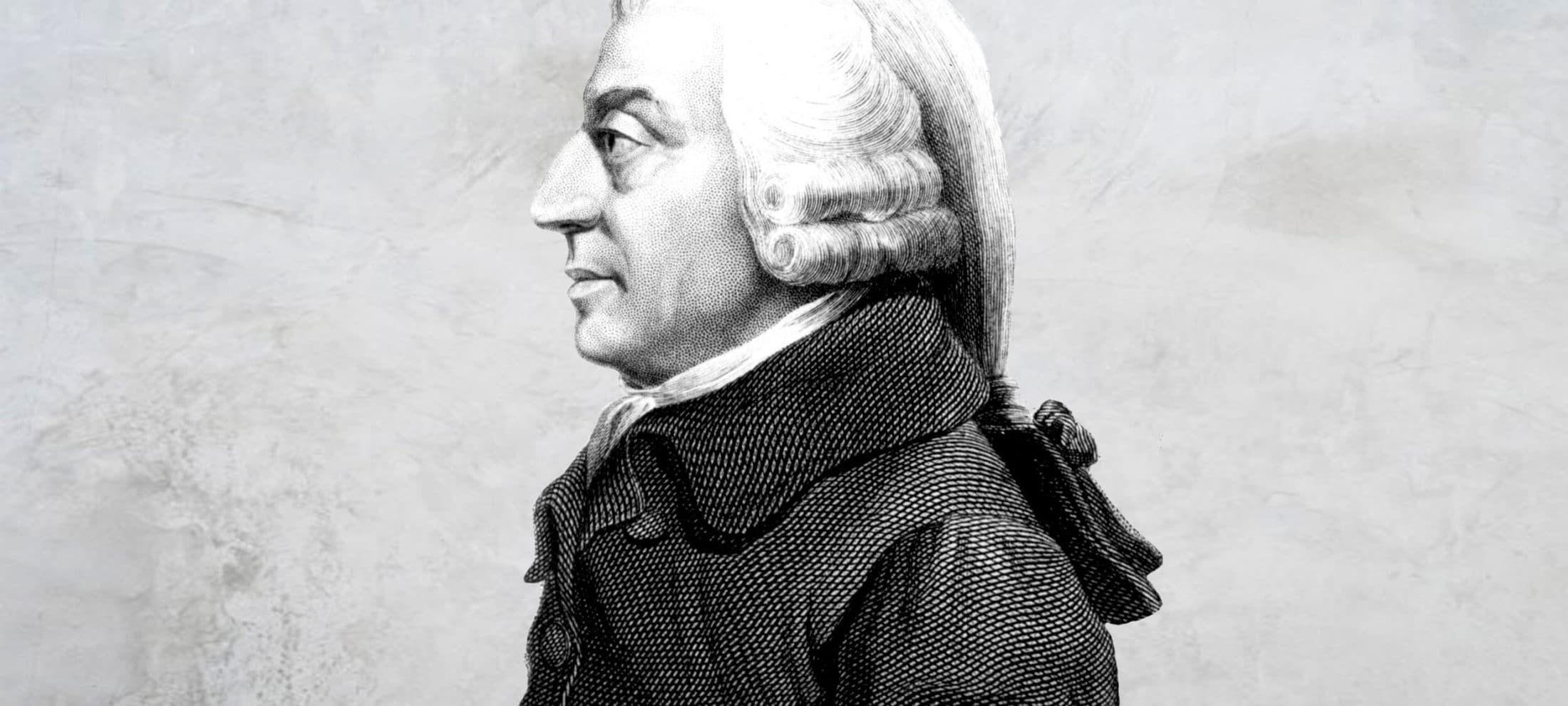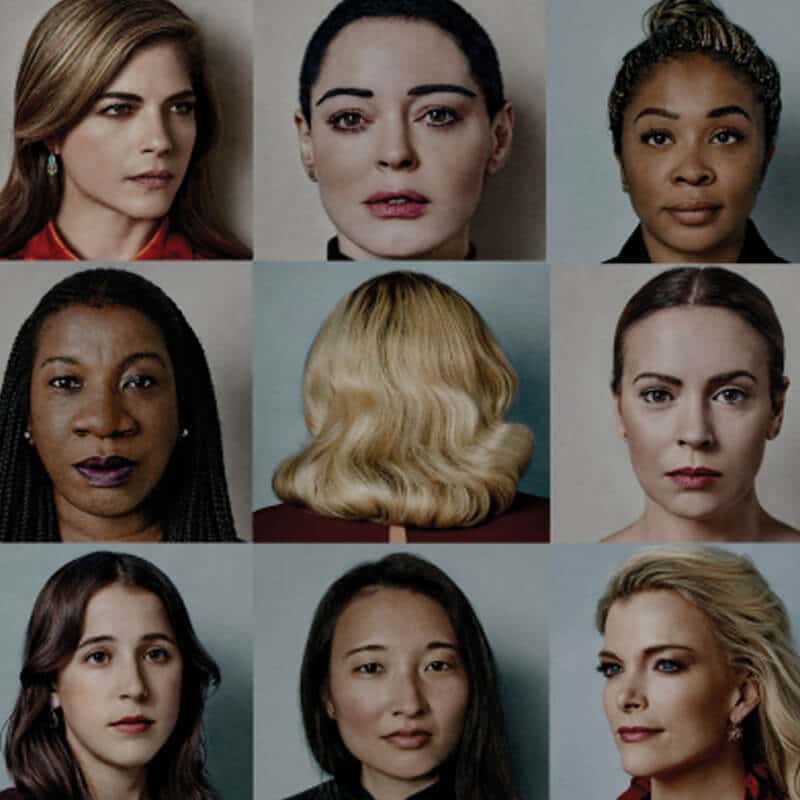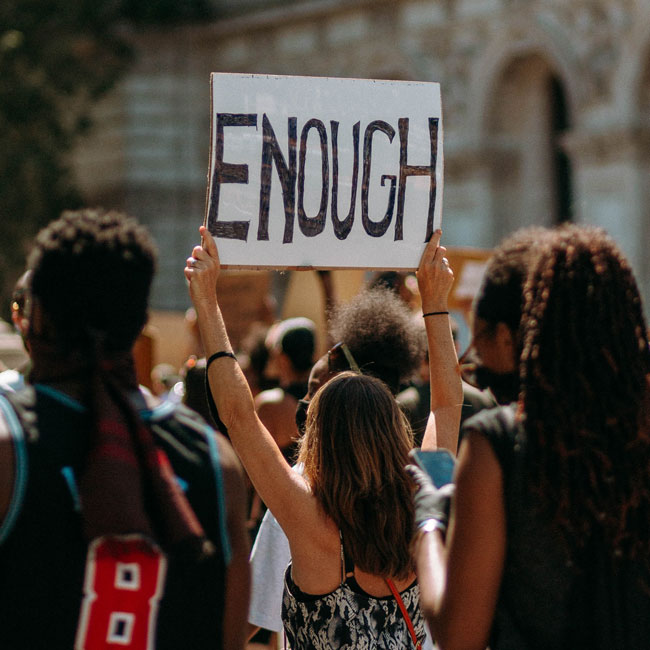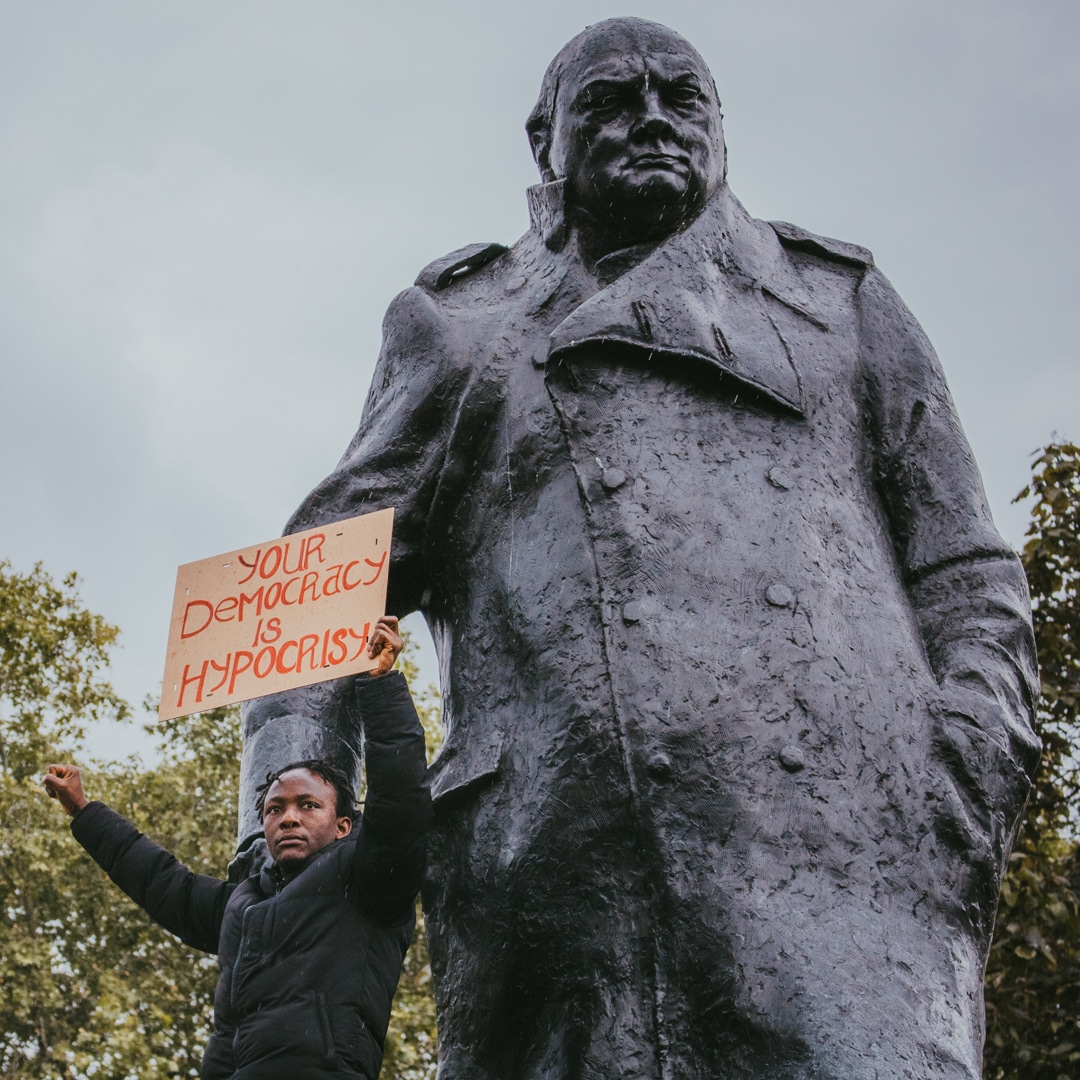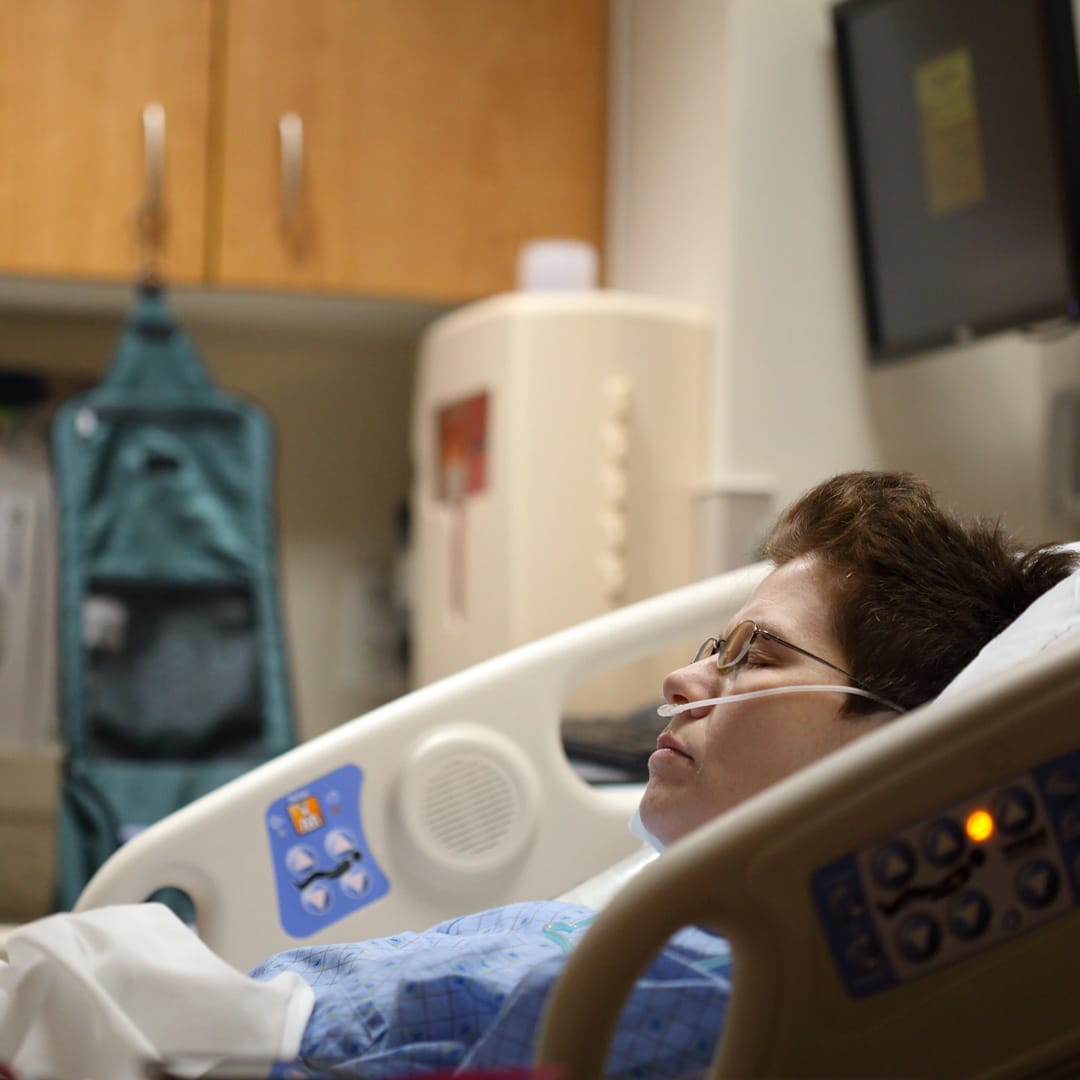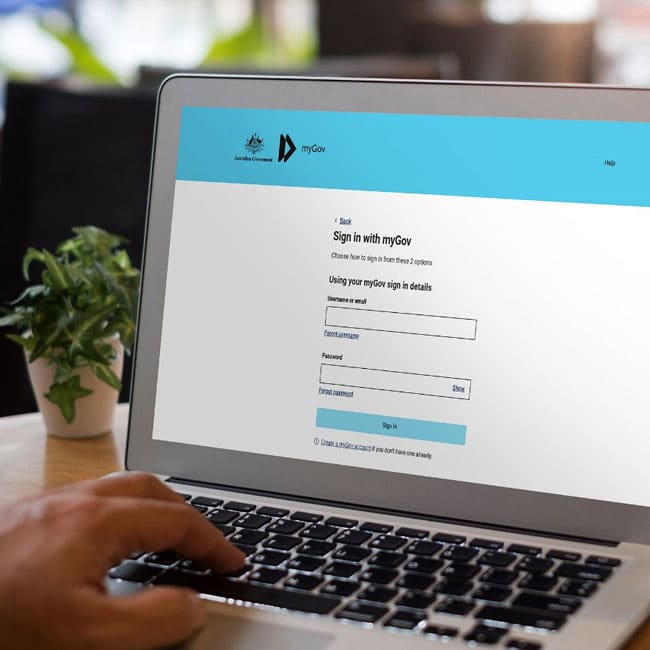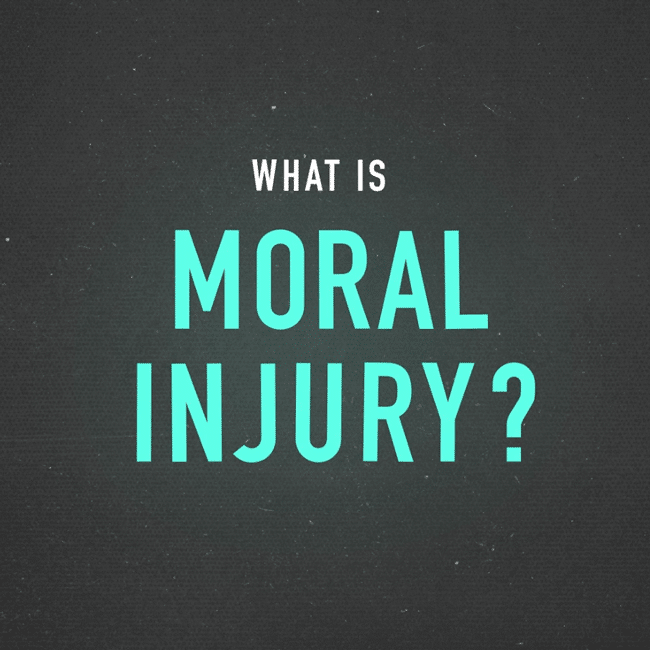The sticky ethics of protests in a pandemic
The sticky ethics of protests in a pandemic
Opinion + AnalysisPolitics + Human RightsRelationshipsSociety + Culture
BY Simon Longstaff The Ethics Centre 31 JUL 2020
[Video Transcript]
This week has seen the unfolding of a classic ethical dilemma.
A clash between the ethics of peaceful citizens wishing to exercise their democratic right to gather in support of the Black Lives Matter movement and the ethics of medical experts, the NSW Government, the Supreme Court and the NSW Police Force – all of whom combined to prevent these same citizens from gathering together in numbers thought to represent a risk to human health and safety.
The strangest thing of all was that people on both sides of this dilemma supported the objectives of the protesters – with the Deputy Chief Medical Officer, Dr Nick Coatsworth, saying that on any other day, and in any other circumstance, he would be in the ranks of the protesters – championing their cause. Even the NSW Police Commissioner, Mick Fuller, sounded genuinely sympathetic.
So, how did people sharing so much in terms of good will find themselves so divided … and what are we to make of the merits of each side of the argument?
To say that these are extraordinary times is the understatement of the year. The second wave of infections, in Victoria, has ramped up the pressure as we witness the infection spread like wildfire. What started off as a lazy spark is now a growing conflagration – burning up the lives of the vulnerable as it spreads from hotel, to tower block, to abattoir, to aged care homes. The medical fraternity is seeing frontline staff having to withdraw to quarantine as the beds begin to fill. Meanwhile, lockdown and mounting concern is further depressing economic activity.
Is there any wonder that the authorities in NSW are desperate to prevent the same sparks from igniting here? Already, we know that the tinder is dry … with minor outbreaks flaring up across the city. Infection rates in Sydney are on the knife-edge. So when the best available medical advice was that it is too dangerous for a mass gathering of those who support the proposition that Black Lives Matter, a Supreme Court Judge ordered that the protests not proceed – not to suppress the free expression of political opinion but instead to protect the vulnerable many from the risk posed by the sincere and committed few.
Against this, the protest organisers argued that they would guarantee a safe event with people masked and physically distant. They charged the authorities with hypocrisy, pointing out that if people are allowed to travel to work or gather for church services or engage in any one of a number of other types of permitted activity, why single out and ban a protest to condemn the deaths in custody of First Nations people? It’s a good question.
Opponents to the gathering could argue that a protest is, by its very nature, an unruly venture. No one can ever know, in advance, who will turn up, in what numbers, in what mood, with what motives? Even the best organised political gathering can get out of control. It is at least arguable that there is a valid distinction to be made between protest marches and other gatherings.
Even so, it’s hard not to think that it might have been better to set clear guidelines for the gathering, and only then intervene if they were not followed. As noted above, the protest organisers were publicly committing to an event in which every person wore a mask and maintained proper distancing in a large, open air environment.
One wonders what might have been possible had the police and organisers been able to work together to uphold such standards. In those circumstances I reckon that the organisers might have been just as willing, as the police, to close down the event if their supporters failed to observe the rules.
However, we shall now never know.
Some might suggest an ulterior motive in curbing a protest about black lives and Indigenous deaths in custody. If you belong to one of the marginalised groups who have lost loved ones to the criminal justice system due to racism and prejudice, it would be easy to believe that the cancellation of a protest march is just the latest example of unjust oppression.
However, in this case, I do not think that would be a fair or accurate judgment. As I noted above, there was a palpable air of good will in support of the protesters’ objectives, if not their chosen means on this occasion.
Instead, fear of what might have happened seems to have won the day. In part, this is because the public is merciless and unforgiving whenever public officials make the slightest mistake. Again, Victoria is a case in point, with the Andrews government being hauled over the coals for its evidently ineffective management of the pandemic. I very much doubt that Daniel Andrews, or his colleagues, would be cut any slack, by the Victorian public, if they invoked arguments about democracy and free speech to defend their decision making.
NSW Premier, Gladys Berejiklian, would have this example in mind, concluding that few politicians are ever punished for going overboard on public health and safety. More’s the pity.
In my opinion, politicians should be held to equal account for going further than is reasonable or proportionate -especially because of the implications on civil liberties, not least for especially vulnerable and disenfranchised groups. Governments that curb the liberty of citizens should only do so for reasons of necessity, and then only in a manner that is reasonable, proportionate and equitable. Yet, rarely do we see such standards being invoked by a fearful public.
There is a fine line between genuinely protecting the public from harm and constraining the democratic rights of citizens; there is a fine line between exercising those rights and avoiding preventable harm to others.
Ideally, one limits those rights to the bare minimum necessary to secure the public good. It is an open question as to whether or not that occurred in this case.
You can contact The Ethics Centre about any of the issues discussed in this article. We offer free counselling for individuals via Ethi-call; professional fee-for-service consulting, leadership and development services; and as a non-profit charity we rely heavily on donations to continue our work, which can be made via our website. Thank you.
Ethics in your inbox.
Get the latest inspiration, intelligence, events & more.
By signing up you agree to our privacy policy
You might be interested in…
Big thinker
Politics + Human Rights, Relationships
Big Thinker: Adam Smith
Explainer
Relationships
Ethics Explainer: Ethics
Opinion + Analysis
Politics + Human Rights, Relationships
Why victims remain silent and then find their voice
Opinion + Analysis
Health + Wellbeing, Relationships
What ethics should athletes live by?
BY Simon Longstaff
Simon Longstaff began his working life on Groote Eylandt in the Northern Territory of Australia. He is proud of his kinship ties to the Anindilyakwa people. After a period studying law in Sydney and teaching in Tasmania, he pursued postgraduate studies as a Member of Magdalene College, Cambridge. In 1991, Simon commenced his work as the first Executive Director of The Ethics Centre. In 2013, he was made an officer of the Order of Australia (AO) for “distinguished service to the community through the promotion of ethical standards in governance and business, to improving corporate responsibility, and to philosophy.” Simon is an Adjunct Professor of the Australian Graduate School of Management at UNSW, a Fellow of CPA Australia, the Royal Society of NSW and the Australian Risk Policy Institute.
BY The Ethics Centre
The Ethics Centre is a not-for-profit organisation developing innovative programs, services and experiences, designed to bring ethics to the centre of professional and personal life.
Stop giving air to bullies for clicks

Stop giving air to bullies for clicks
Opinion + AnalysisPolitics + Human RightsRelationshipsSociety + Culture
BY Simon Longstaff The Ethics Centre 31 JUL 2020
By now, most people will have heard of the antics of the person who berated staff at Bunnings – simply because the staff insisted that she wear a mask before entering the store.
As is common these days, the altercation was filmed on someone’s phone and uploaded to social media channels. However, the story also captured the attention of mainstream media. What would normally have been an incident of minor importance soon became a topic of the national conversation – bringing fame (or infamy) to the antagonist.
I do not want to add to this person’s unwarranted celebrity. In part, this is because I do not think people should be rewarded for being rude and aggressive. In part, it is because I do not want to fuel further interest in ideas that are not just wrong – but dangerously so.
Instead, I want to focus on two issues of relevance to the media. First, should oxygen be given to people and ideas that do not deserve the public’s attention? Second, how can we avoid causing unintended harm done to people who have legitimate reasons for not wearing face masks – but who are made to feel like a pariah for not doing so?
The first of these issues is one of general concern. Naturally enough, the media is keen to cover stories that engage the interest of their audience. This is perfectly understandable in a context where maintaining audience numbers is critical to survival. People want to hear about the extraordinary. However, there are times when giving people what they want is not in their interest – a principle that holds for individuals as it does for wider society. An alcoholic might want another drink – but it is not in their interest to give them one!
The world abounds with crackpots, conspiracy theorists – and the like. At one level, it is easy to dismiss them as a part of a radical fringe whose ludicrous beliefs are merely entertaining. However, we should never underestimate the ability of such groups to wheedle their way into the public consciousness – even to the point where what seems to be extreme on one day eventually becomes commonplace … just part of the background beliefs of our time. We have seen this in the case of anti-vaxxers, or the people who believe that infection rates for COVID-19 are linked to 5G telephone towers, or that one’s gender or race determines character … and so on.
As noted above, some of these ideas can be explosive in their effects … with the potential for damage easily predicted. Yet, if the proponents are sufficiently weird, wonderful or compelling, then there is a chance that their views might be amplified by a media seduced by the novelty of what is being presented. This is not to suggest that the media approves of the ideas it promotes. If anything, most outlets probably assume that wacky ideas are pure entertainment – that no one will actually be seduced by ridiculous ideas. Unfortunately, history is full of examples of improbable beliefs becoming embedded in ‘mainstream’ ideologies.
This is not to suggest that the media should never cover stories like the incident at Bunnings. However, I think a decision to tell such a story comes with an additional obligation explicitly to discount the validity of claims that are false and misleading. That is, there are times when just reporting the facts will not be enough. Instead, editorial judgement needs to be brought to bear.
The application of judgement is also required in minimising the unintended, adverse effects of moderating opinion about matters like the wearing of face masks during a rampant pandemic. The person at Bunnings objected to wearing a mask as if to do so was some kind of violation of basic human rights. Those arguments were singularly poor – and potentially dangerous – as they uncritically undercut most efforts to preserve the health and safety of the community. However, there could have been another person – perhaps suffering from a medical condition – for whom not wearing a mask is a matter of necessity (not choice). The arguments of that person deserve to be taken seriously.
While it is important to repudiate the crackpots, we should do so with a care not to inflame public prejudice of a kind that discounts every objection as invalid. Some people have perfectly good reasons for not conforming to accepted norms that are justifiable in general.
The bully at the Bunnings door did little to advance the public debate about the rights and responsibilities of citizens and the community. But perhaps she has done some good – in prompting further reflection about what, when and how the media chooses to amplify through its channels.
This article was first written for, and published by Crikey. It has been republished here with permission.
You can contact The Ethics Centre about any of the issues discussed in this article. We offer free counselling for individuals via Ethi-call; professional fee-for-service consulting, leadership and development services; and as a non-profit charity we rely heavily on donations to continue our work, which can be made via our website. Thank you.
Ethics in your inbox.
Get the latest inspiration, intelligence, events & more.
By signing up you agree to our privacy policy
You might be interested in…
Opinion + Analysis
Politics + Human Rights, Relationships
Intimate relationships matter: The need for a fairer family migration system in Australia
Opinion + Analysis
Politics + Human Rights
How far should you go for what you believe in?
Opinion + Analysis
Relationships
How to respectfully disagree
Explainer
Relationships
Ethics explainer: Normativity
BY Simon Longstaff
Simon Longstaff began his working life on Groote Eylandt in the Northern Territory of Australia. He is proud of his kinship ties to the Anindilyakwa people. After a period studying law in Sydney and teaching in Tasmania, he pursued postgraduate studies as a Member of Magdalene College, Cambridge. In 1991, Simon commenced his work as the first Executive Director of The Ethics Centre. In 2013, he was made an officer of the Order of Australia (AO) for “distinguished service to the community through the promotion of ethical standards in governance and business, to improving corporate responsibility, and to philosophy.” Simon is an Adjunct Professor of the Australian Graduate School of Management at UNSW, a Fellow of CPA Australia, the Royal Society of NSW and the Australian Risk Policy Institute.
BY The Ethics Centre
The Ethics Centre is a not-for-profit organisation developing innovative programs, services and experiences, designed to bring ethics to the centre of professional and personal life.
Punching up: Who does it serve?

Punching up: Who does it serve?
Opinion + AnalysisPolitics + Human RightsRelationshipsSociety + Culture
BY Simon Longstaff 24 JUL 2020
I recently watched Hannah Gadsby’s comedic tour-de-force, Douglas. It is sharp and provocative – but wonderfully insightful. In the course of her performance, Hannah explains that she applies to her humour the principle of ‘punching up’.
It is an approach employed by comics when deciding who is a legitimate target for ridicule and satire. The idea is pretty simple, it’s fine to take aim at someone who is more powerful than you – but never those who are relatively weaker. The operating assumption is that the powerful are unlikely to be harmed by a bit of fun at their expense, while the weaker have suffered enough without having to cope with a comic’s insults.
The idea of ‘punching up’ seems to have taken on a life beyond the world of comedy. More generally, those who stand higher up the ladder of power and privilege are now expected to accept, without retaliation or reproach, whatever comes their way from those located on lower rungs of the ladder. Sitting at the top are cis-gendered, white men, like me. If we complain, then this is just evidence of our ‘thin skin’ and an inability to take a serving of what we have been dishing out for millennia.
It is easy to identify who is currently at the top of the ladder. However, beyond that point, working out the relativities of who is ‘up’ or ‘down’ becomes increasingly difficult. After all, there is no natural hierarchy of power, privilege, disadvantage or subjugation.
Instead, positions change as the wheel of history turns – with some groups ascending at one point only to see their position reversed at another. For example, consider the case of the Aztecs. Prior to the arrival of the Spaniards, they commanded an empire built on the conquest, enslavement and ritual sacrifice of those who fell under their sway. Yet, today, their descendants are a dispossessed people with an extraordinarily resilient culture that has survived centuries of attempted suppression by their colonisers.
So, who gets to ‘punch up’ (or be ‘punched’) is relative to time and culture. The role of being a priestess can be at the apex of power and influence in one setting but marginalised in another. A banker can be reviled as a ‘usurer’ in the past only to be celebrated by future generations.
However, that’s not where the relativities end. Conduct that is condoned in one case will be condemned in another – even though the things done are identical. For example, what is praised as being ‘forthright’ in a man has often been criticised as ‘aggression’ in a woman. Asymmetry of judgement also applies in the context of ‘punching up’. Behaviour that is justifiably condemned in a powerful person is often excused or ignored if practiced by a relatively powerless individual.
So, what are we to make of this? First, let’s acknowledge that there are some individuals and groups who have been systematically marginalised, over such a long period of time, as to deserve the opportunity to ‘even things up’ in any contest. Only those blinded by prejudice would deny this to be so.
However, this is not to say that relative historical disadvantage should excuse anything done – just as long as it is directed at the relatively powerful. A person fighting a stronger adversary may pick up a stick to ‘even the odds’ – but it would be wrong for them to attack an unarmed person with a firearm. To do so would involve a disproportionate use of force.
Likewise, I think it wrong to belittle or vilify a person (any person) in a deliberate attempt to wound them with words. That is not comedy – it is abuse. Comics make a person uncomfortable as a way of drawing attention to an issue of underlying importance – but their aim is not (and should not be) to harm. To do otherwise is to adopt the stance of the bully … which is wrong whatever one’s relative position in life.
I realise that it is easy to recommend restraint when one belongs to a powerful or privileged group – as I do. However, I am not a supporter of relativism in ethics (or elsewhere). To wound another – willfully or recklessly – is wrong.
The fact that it occurs as a result of anger or frustration might explain such behaviour – but it does not justify it. I know that this will be a view unpopular with those who have a taste for revenge – who believe in the proverbial ‘eye for an eye, tooth for a tooth’. However, I prefer the position of the Reverend Dr Martin Luther King Jr. who wrote that:
“Violence as a way of achieving racial justice is both impractical and immoral. It is impractical because it is a descending spiral ending in destruction for all. The old law of an eye for an eye leaves everybody blind. It is immoral because it seeks to humiliate the opponent rather than win his understanding; it seeks to annihilate rather than to convert.”
Yes, great wrongs need to be made right – but justice cannot be produced by injustice.
So, does this load the greater obligation onto the shoulders of those who have traditionally been on the wrong end of the stick? On the contrary, those of us who enjoy the greatest power and privilege should accept the greatest obligation to act ethically … not least because we have the capacity to do so.
We should begin by recognising and redressing the disparities of our day; we should acknowledge that we did not earn our privileged position – but were simply lucky enough to be born blessed with opportunity. It is not out of guilt, but with a sense of justice, that we should seek to redress historical and contemporary sources of inequity.
Perhaps then the urge to punch will eventually be assuaged, and something better – that could never have grown in the soil of anger and resentment – can emerge to see the light of day.
Ethics in your inbox.
Get the latest inspiration, intelligence, events & more.
By signing up you agree to our privacy policy
You might be interested in…
Opinion + Analysis
Health + Wellbeing, Relationships
Germaine Greer is wrong about trans women and she’s fuelling the patriarchy
Opinion + Analysis
Relationships, Society + Culture
Inside The Mind Of FODI Festival Director Danielle Harvey
Opinion + Analysis
Relationships, Society + Culture
FODI launches free interactive digital series
Opinion + Analysis
Relationships, Society + Culture
I’m really annoyed right now: ‘Beef’ and the uses of anger
BY Simon Longstaff
Simon Longstaff began his working life on Groote Eylandt in the Northern Territory of Australia. He is proud of his kinship ties to the Anindilyakwa people. After a period studying law in Sydney and teaching in Tasmania, he pursued postgraduate studies as a Member of Magdalene College, Cambridge. In 1991, Simon commenced his work as the first Executive Director of The Ethics Centre. In 2013, he was made an officer of the Order of Australia (AO) for “distinguished service to the community through the promotion of ethical standards in governance and business, to improving corporate responsibility, and to philosophy.” Simon is an Adjunct Professor of the Australian Graduate School of Management at UNSW, a Fellow of CPA Australia, the Royal Society of NSW and the Australian Risk Policy Institute.
Education is more than an employment outcome

Education is more than an employment outcome
Opinion + AnalysisPolitics + Human RightsSociety + Culture
BY Simon Longstaff 26 JUN 2020
The Federal Government recently announced university funding restructures that made a clear statement – to prioritise ‘useful’ degrees.
This decision is significant for a number of reasons. First, it has further shifted the cost of a university education away from government and onto students. It has done so on the assumption that education benefits the individual more than the society to which they contribute.
Second, the government has nominated some courses of study as being more likely to lead to employment than will others. Somewhat paradoxically, the government is reducing the cost of study for those most likely to get jobs, while increasing it for those it thinks will struggle to find employment due to their ill-considered choice of subjects. ‘Cost’ is deliberately unrelated to ‘ability to pay’ – and requires those with apparently poor employment prospects to subsidise the education of their more fortunate peers.
It’s clear that the government hopes market forces will encourage more people to take on ‘useful’ courses of study. However, in a further ironic twist, the new policy relies on the fact that many people will not. Otherwise, the economics won’t work. Fortunately (for the policy) there will be limited places available for the study of ‘useful’ courses in nursing, teaching and agriculture. This means that some of the students who rationally seek a ‘good deal’ will be forced to accept their ‘second choice’ – even to the point of having to suffer through a relatively expensive ‘dead-end’ degree in the Humanities.
However, this piece is not meant to be an examination of the paradoxes of government policy. Rather, I want to look at a deeper issue – the underlying assumption that resources are best invested in ‘useful’ things.
Demonstrating ‘usefulness’
This thinking stalks my waking hours – as it probably does anyone running an organisation that is not immediately and demonstratively ‘useful’. For those of us working in the not for profit world, the word ‘useful’ is never used. In its place is the notion of ‘impact’. Conventional wisdom dictates that one must demonstrate impact – or die!
The thinking that drives a demand to measure, report on and invest in ‘impact’ is the same thinking that leads a government to focus its investment in higher education on supporting courses that lead to the ‘jobs of the future’. With limited taxpayer and philanthropic dollars to spend, why not invest in those things that can prove themselves most effective? It’s easy to argue that this is the rational thing to do… but is it?
What is the ‘impact’ of Bell Shakespeare staging King Lear? What is the ‘impact’ of the National Gallery of Australia hanging Blue Poles? What is the impact of the Festival of Dangerous Ideas? I think it impossible to trace the impact of any of these works. We can measure outputs – the number of attendances, mentions in the media, donations received, and so on. But these numbers don’t identify the ideas or experiences seeded in the theatre, a gallery or at a festival that germinate – perhaps years later – and change the world.
Ideas can change the world
We underestimate the value of things like philosophy when assessed over the long term. Nearly every branch of knowledge that we draw on today including science, mathematics, economics, medicine and psychology were thought into existence by philosophers.
People motivated by nothing more than a love of wisdom (philo-sophia) have changed the world. The original concept of the atom came from Democritus. Pythagoras brought us the role of constants in mathematics. The classification of species began from Aristotle. Thomas Hobbes ideated the modern nation state. Adam Smith brought us the free market and Peter Singer animal rights. With the benefit of hindsight, their impact is obvious. But few of the world’s great philosophers could have demonstrated ‘impact’ while working on their seminal ideas.
I understand the strong desire to measure impact, to invest in making a tangible difference. I understand why governments want to fund ‘practical outcomes’ such as helping people to secure future employment. However, there is something deeply irrational about turning one’s back on forms of education and endeavour that emphatically shape the world – but at a pace and by means we cannot easily measure.
If ‘impact’ is the only measure of something’s worth, then we might as well close down the arts, the humanities, and a whole lot more. However, this would be to deny a fundamental truth that has informed all great societies: some things matter not because of their impact – but in and of themselves.
Ethics in your inbox.
Get the latest inspiration, intelligence, events & more.
By signing up you agree to our privacy policy
You might be interested in…
Opinion + Analysis
Politics + Human Rights
Ethics Explainer: Testimonial Injustice
LISTEN
Relationships, Society + Culture
Little Bad Thing
Opinion + Analysis
Business + Leadership, Politics + Human Rights
Do diversity initiatives undermine merit?
Big thinker
Politics + Human Rights, Relationships
Big Thinker: Dennis Altman
BY Simon Longstaff
Simon Longstaff began his working life on Groote Eylandt in the Northern Territory of Australia. He is proud of his kinship ties to the Anindilyakwa people. After a period studying law in Sydney and teaching in Tasmania, he pursued postgraduate studies as a Member of Magdalene College, Cambridge. In 1991, Simon commenced his work as the first Executive Director of The Ethics Centre. In 2013, he was made an officer of the Order of Australia (AO) for “distinguished service to the community through the promotion of ethical standards in governance and business, to improving corporate responsibility, and to philosophy.” Simon is an Adjunct Professor of the Australian Graduate School of Management at UNSW, a Fellow of CPA Australia, the Royal Society of NSW and the Australian Risk Policy Institute.
In the face of such generosity, how can racism still exist?

In the face of such generosity, how can racism still exist?
Opinion + AnalysisPolitics + Human RightsRelationshipsSociety + Culture
BY Simon Longstaff The Ethics Centre 12 JUN 2020
Is there any polite or moderate way to condemn racism? I think not. Nor should there be. As the world has witnessed, on countless occasions, racism kills. It does so for the worst of all possible reasons – by denying the equal humanity of some people simply because of the colour of their skin.
The evil caused by racism is not ‘theoretical’. We do not need to speculate about the horrors that it has unleashed. We have only to listen to the evidence of the enslaved, the dispossessed and the murdered to know what follows when one group of people is thought to be ‘less fully human’ than another.
Some people are upset by the words ‘Black Lives Matter’. They assert an alternative proposition that, ‘All Lives Matter’. Well, of course they do. But that has never been denied by the BLM movement. BLM does not claim that only black lives matter. They do not say that black lives matter more than any other.
They simply state that black lives also matter – in a way that racism denies. And they are right. They might also ask, ‘where were the people chanting ‘All Lives Matter’ when the ‘original sin’ of racism was being visited on the world?’. Why has the ‘All Lives Matter’ brigade only found its voice now that the spotlight has been turned on the oppressors by the oppressed?
I come from a privileged background. So, I can barely imagine what it must be like to be on the wrong end of the racist scourge. I can only guess at my reaction – probably a burning rage at the sheer injustice of my treatment. Like the Rev’d. Dr. Martin Luther King Jr – I would demand to be judged for the quality of my character rather than the colour of my skin. Denied that right, I would let loose my rage on an unjust world and those who represent the system that denied me the most basic form of dignity.
So, it eclipses all understanding to find that, in my experience, the vast majority of Indigenous Australians who have experienced racism are, in fact, amongst the most generous and accepting of people. Yes, there are angry firebrands. However, rather than replicate the wrongs they have suffered or become like those who have denied their humanity, most of those affected choose to repudiate racism by accepting others for who they are and not how they seem.
I speak of this from direct experience. A few days after my seventeenth birthday, I arrived on Groote Eylandt – the home of the Anindilyakwa people of East Arnhem Land and the Gulf of Carpentaria. This was the mid-1970s and the racism directed towards the local mob was common, open and shameless. I doubt that those involved would consider themselves as deliberately being racist. If anything, their racism was almost ‘casual’ in character – a product of ignorance, prejudice and ingrained habits of mind.
It’s hard to explain exactly how and why my experience was so different – perhaps it was my young age or a lucky accident … I really do not know. Whatever the reasons, a few of the Aboriginal men took me under their wing. Friendships developed and eventually I was given a skin name and inducted into a network of kinship ties that I value to this day. The point is that if you were to meet me ‘in the flesh’ you would simply see a middle-aged, white male. As far as I know, I have no genetic ties to the people of Groote. Yet, their acceptance of me has been complete and unconditional.
I have often questioned my experience – wondering if I might have invented a narrative to match an idealized version of myself. However, improbable as it might seem, the connections are real. I will never forget spending an evening with two members of the Amagula Clan (a brother and sister) who explained their kinship connection to me (I carry a Lalara name). Eventually, they simply placed their hands over my heart – to tell me that the colour of my skin, my ‘outward form’, did not matter. That this is not what they saw when they looked at me … but something altogether different. Both are dead – dying far earlier than would have been the case if Australia had been settled on more just terms.
My experience is not unique. Indeed, I believe that our First Nations people are willing to embrace anyone who cares to be open to their doing so. All that is asked is that there be a recognition of simple truths about our relationship to each other and to all that belongs to and is part of the country of which we form equal parts.
In the face of such generosity of spirit – how can we possibly allow racism to persist?
IMAGE CREDIT: The image displayed in this article is a painting by Alfred Lalara (deceased), a talented Groote Eylandt artist. The title is Angurugu River.
You can contact The Ethics Centre about any of the issues discussed in this article. We offer free counselling for individuals via Ethi-call; professional fee-for-service consulting, leadership and development services; and as a non-profit charity we rely heavily on donations to continue our work, which can be made via our website. Thank you.
Ethics in your inbox.
Get the latest inspiration, intelligence, events & more.
By signing up you agree to our privacy policy
You might be interested in…
Opinion + Analysis
Society + Culture
Trying to make sense of senseless acts of violence is a natural response – but not always the best one
Big thinker
Relationships
Big Thinker: Tyson Yunkaporta
Opinion + Analysis
Society + Culture
Save the date: FODI returns in 2020!
Opinion + Analysis
Relationships
TEC announced as 2018 finalist in Optus My Business Awards
BY Simon Longstaff
Simon Longstaff began his working life on Groote Eylandt in the Northern Territory of Australia. He is proud of his kinship ties to the Anindilyakwa people. After a period studying law in Sydney and teaching in Tasmania, he pursued postgraduate studies as a Member of Magdalene College, Cambridge. In 1991, Simon commenced his work as the first Executive Director of The Ethics Centre. In 2013, he was made an officer of the Order of Australia (AO) for “distinguished service to the community through the promotion of ethical standards in governance and business, to improving corporate responsibility, and to philosophy.” Simon is an Adjunct Professor of the Australian Graduate School of Management at UNSW, a Fellow of CPA Australia, the Royal Society of NSW and the Australian Risk Policy Institute.
BY The Ethics Centre
The Ethics Centre is a not-for-profit organisation developing innovative programs, services and experiences, designed to bring ethics to the centre of professional and personal life.
The ethics of tearing down monuments

The ethics of tearing down monuments
Opinion + AnalysisPolitics + Human RightsRelationshipsSociety + Culture
BY Simon Longstaff The Ethics Centre 12 JUN 2020
In the UK and US and other nations around the world, public monuments dedicated to people who have profited from or perpetuated slavery and racism are being torn down by demonstrators and public authorities who sympathise with the justice of their cause.
Statues of Christopher Columbus, Edward Colston, King Leopold II and Confederate Gen. Robert E. Lee are amongst those toppled in protest.
What are we to make of these acts? In particular, who should decide the fate of such monuments – and according to what criteria?
By their very nature, statues are intended to honour those they depict. They elevate both the likeness and the reputation of their subject – conferring a kind of immortality denied to those of us who simply fade away in both form and memory.
So, the decision to raise a statue in a public place is a serious matter. The choice reveals much about the ethical sensibilities of those who commission the work. Such a work is a public declaration that a particular person, through their character and deeds, is deserving of public commemoration.
There are six criteria that should be used to evaluate the public standing of a particular life. These can be applied at the time of commissioning a monument or retrospectively when determining if such a commemoration is justified.
-
They must not be associated with any gateway acts
Are there aspects of the person’s conduct that are so heinous as to rule them out, irrespective of any other achievement that might merit celebration? For example, one would not honour a genocidal mass murderer, even if the rest of their life was marked by the most profoundly positive achievements. There are some deeds that are so wrong as to be beyond rectification.
-
Their achievements must be exceptionally noteworthy
Did they significantly exceed the achievements of others in relevantly similar circumstances? For example, we should note that most statues recognise the achievements of people who were born into conditions of relative privilege. The outstanding achievements of the marginalised and oppressed are, for the most part, barely noticed, let alone celebrated.
-
Their work must have served the public good
Did the person pursue ends that were noble and directed to the public good? For example, was the person driven by greed and a desire for personal enrichment – but just happened to increase the common good along the way?
-
The means by which they achieved their work must be ethical
Were the means employed by the person ethically acceptable? For example, did the person benefit some by denying the intrinsic dignity of others (through enslavement, etc)?
-
They must be the principal driver of the outcomes associated with their deeds
Is the person responsible for the good and evil that flowed from their deeds? Are they a principal driver of change? Or have others taken their ideas and work and used them for good or ill? It is important that we neither praise nor blame people for outcomes that they would never have intended but were the inadvertent product of their work. In those cases, we should not gloss over the truth of what happened. But if they otherwise deserve to be honoured for their achievements, then these should not be deemed ‘tainted’ by the deeds of others.
-
The monument must contribute positively to the public commons
Would the creation of the monument be a positive contribution to the public commons, or is it likely to become a site of unproductive strife and dissension? In considering this, does the statue perform a role beyond celebrating a particular person and their life? Is it emblematic of some deeper truth in history that should be acknowledged and debated? Not every public monument should be a source of joy and consensus. Some play a useful role if they prompt debate and even remorse.
It will be noted that five of the six criteria relate to the life of the individual who is commemorated. Only the sixth criterion looks beyond the person to the wider good of society. However, this is an important consideration given that we are thinking, here, specifically about statues displayed in public places.
The retrospective application of this criteria is precisely what is happening ‘on the streets’ at the moment. The trouble is that the popular response is often more visceral than considered – and this sparks deeper concerns amongst citizens who are ready to embrace change … but only if it is principled and orderly.
Of course, asking frustrated and angry people to be ‘principled and orderly’ in their response to oppression is unlikely to produce a positive response. That’s why I think it important for civic authorities to take responsibility for addressing such questions, and to do so proactively.
This was recently demonstrated by the Borough of Tower Hamlets that removed the statue of slave owner Robert Milligan from its plinth at West India Quay in London’s Docklands. As the Mayor of London, Sadiq Khan, noted: “it’s a sad truth that much of our wealth was derived from the slave trade – but this does not have to be celebrated in our public spaces”.
UPDATE: The statue of slave trader Robert Milligan has now been removed from West India Quay.
It’s a sad truth that much of our wealth was derived from the slave trade – but this does not have to be celebrated in our public spaces. #BlackLivesMatterpic.twitter.com/ca98capgnQ
— Sadiq Khan (@SadiqKhan) June 9, 2020
What does all of this mean for Australia? There will be considerable debate about what statues should be removed. I will leave it to others to apply the criteria outlined above. However, the issue is not just about the statues we take down.
What of those we fail to erect? Who have we failed to honour? For example, have we missed an opportunity to recognise people like Aboriginal warrior Pemulwuy whose resistance to European occupation was every bit as heroic as that of the British Queen Boudica. Two warrior-leaders – the latter celebrated; the other not. The absence is eloquent.
You can contact The Ethics Centre about any of the issues discussed in this article. We offer free counselling for individuals via Ethi-call; professional fee-for-service consulting, leadership and development services; and as a non-profit charity we rely heavily on donations to continue our work, which can be made via our website. Thank you.
Ethics in your inbox.
Get the latest inspiration, intelligence, events & more.
By signing up you agree to our privacy policy
You might be interested in…
Opinion + Analysis
Society + Culture
Does ‘The Traitors’ prove we’re all secretly selfish, evil people?
Opinion + Analysis
Society + Culture
Why are people stalking the real life humans behind ‘Baby Reindeer’?
Opinion + Analysis
Business + Leadership, Society + Culture
The Ethics Centre: A look back on the highlights of 2018
Opinion + Analysis
Health + Wellbeing, Relationships
Rationing life: COVID-19 triage and end of life care
BY Simon Longstaff
Simon Longstaff began his working life on Groote Eylandt in the Northern Territory of Australia. He is proud of his kinship ties to the Anindilyakwa people. After a period studying law in Sydney and teaching in Tasmania, he pursued postgraduate studies as a Member of Magdalene College, Cambridge. In 1991, Simon commenced his work as the first Executive Director of The Ethics Centre. In 2013, he was made an officer of the Order of Australia (AO) for “distinguished service to the community through the promotion of ethical standards in governance and business, to improving corporate responsibility, and to philosophy.” Simon is an Adjunct Professor of the Australian Graduate School of Management at UNSW, a Fellow of CPA Australia, the Royal Society of NSW and the Australian Risk Policy Institute.
BY The Ethics Centre
The Ethics Centre is a not-for-profit organisation developing innovative programs, services and experiences, designed to bring ethics to the centre of professional and personal life.
Beyond the shadows: ethics and resilience in the post-pandemic environment

Beyond the shadows: ethics and resilience in the post-pandemic environment
Opinion + AnalysisBusiness + Leadership
BY Simon Longstaff The Ethics Centre 31 MAY 2020
Having navigated the first phase of the COVID-19 pandemic with a relatively low loss of life, Australians are hoping to return to a more familiar pattern of living.
For many of those Australians, they seek an illusion. The world to which they return will have been fundamentally altered – not by the virus – but by the decisions we have taken in response to its emergence.
At one point, we feared those decisions would be especially difficult for those working in a health system overwhelmed by infected patients. We imagined health care professionals confronted by the terrible dilemma of having to ration medical resources, deciding who should live or die. Fortunately we have largely been spared from that horror we imagined.
However, it would be a mistake to think that the worst of the ethical dilemmas associated with COVID-19 have been avoided. Rather, they have merely been displaced to another arena – the economy, and the world of work, in particular.
The devastation of the Australian economy has already claimed many victims – not least the hundreds of thousands of people who have lost (or are about to lose) their jobs once the JobKeeper ‘safety net’ is removed.
Those who join the unemployment queues or whose business collapse or whose opportunities dry up will pay the highest price for the choices we have made, so far.
However, there will also be a considerable burden borne by those who must make the terrible decisions about who keeps, or loses, their job during an extended recession – and by those who appear to have survived the crisis, seemingly unscathed.
Every organisation in Australia will be affected by COVID-19. A few will have prospered. However, most will be re-evaluating every aspect of their operations. It is our contention that those with the strongest ethical foundations are most likely not only survive the immediate crisis – but will emerge stronger.
This is not to suggest that the process of change will be easy … in fact, it will be incredibly difficult. However, there are three key insights that we believe will not only ‘limit the damage’ but actually set up organisations for a better future.
-
Crises usually bring to light the ‘shadow values’ at work within an organisation: the fewer the better.
Values and principles inescapably shape our choices – and therefore the world they produce. Many organisations enter a situation of crisis with an established set of stated values and principles. However, a crisis can bring into the light an operative set of values and principles that may otherwise dwell in the ‘shadows’.
These ‘shadow’ values and principles often arise as a ‘mutation’ of the stated set. For the most part, the process of mutation is subtle – beginning with an initial act that is at first tolerated (often because it delivers a profitable outcome) and then accepted as ‘normal’. The process of drift is known as the ‘normalisation of deviance’ – and often proceeds without being observed for what it is: a corruption of the norms of the organisation. Occurring in the ‘shadows’ of an organisation’s culture, the mutations are genuinely ‘unseen’ and therefore resistant to correction.
The most common reason for shadow values and principles gaining a foothold during a crisis is that they are ready-made to fill the vacuum caused whenever ethics is reduced to being an ‘optional extra’, or regarded as a luxury that can only be afforded during easier times.
This weakening of commitment to an organisation’s espoused values and principles allows the shadow set to grow in strength.
One of the best examples is that of the German automaker, Volkswagen, where their stated value of ‘excellence’, was mutated into a shadow value of ‘technical excellence’. The resulting decisions led to an emissions scandal that has cost the company a small fortune in fines and severe reputational damage.
Identifying the risk of mutation of the ethical ‘DNA” of an organisation before it occurs, or if this is not possible, having the tools needed to recognise and correct shadow values and principles when they arise will be critical for organisations moving through this next period.
-
Those who ‘survive’ a crisis may suffer the effects of ‘moral injury’ – leading to sub-optimal results for them personally (and their organisation) if the injury is not addressed.
Many people working in business and the professions have already been confronted by the need to make some distressing decisions – not least of which has been to weigh in the balance the good of the organisation versus the livelihood and well-being of employees.
In many cases, the people who lose their jobs will have been loyal and diligent employees who have performed their roles with distinction; roles that are either unaffordable during a recession or that no longer make sense in the emerging strategic environment where the risks posed by the virus are controlled but not eliminated.
Those who make necessary – but unfair – decisions will suffer a certain amount of personal harm from doing so. However, exposure to the risks of such decision making is generally understood to be part of the job. The greater risk is to those people who play no direct part in the decision making but who also feel that they are the inadvertent ‘beneficiaries’ of the sacrifices made by others.
There is much to be learned about this phenomenon by considering the experience of those who survive disasters like shipwreck. The first phase of the disaster will see strangers (and even rivals) driven to work together by the indiscriminate ‘lash of necessity’. People will bend themselves to the task of rowing towards safety – hopeful that a rescuer might be close at hand.
The second phase arises when the situation becomes more desperate … when rations are depleted, when the water is rising toward the gunwales of an overloaded lifeboat. It is then that some place their personal interests before those of all others – throwing overboard any sense of fellow-feeling. Yet, there will be others who decide that they will make the ultimate sacrifice – quietly slipping below the waves so that others survive.
Finally, the moment of rescue comes and the lash is withdrawn. It should be a time of celebration and euphoria. However, it is common for those who survive enter a stage of grief – because they have survived when others, each equally deserving, have not.
‘Moral injury’ is not only experienced by those who made the decision to sacrifice others, or who hoarded goods that could have helped others. The same injury is caused by those who remain without any reason to explain (or justify) their relative good fortune.
Telling any of these people that they should count themselves ‘lucky to have survived’ is worse than useless. Mere survival, as experienced by such people may be a welcome reality – but it is also an ‘empty achievement’ – and does nothing to protect against the consequences of untreated moral injury; which include depression, post-traumatic stress disorder and in the most severe of cases, suicide.
-
The best response to moral injury is to offer the opportunity to find meaning in adversity – a positive reason that justifies continuing effort.
There are only two ways to prevent moral injury. First, one can seek support when making the initial decisions so that, no matter how tough, they do not give rise to a form of regret and self-blame linked to a series of ‘if only’ statements (‘if only I had considered that perspective’, ‘if only I had thought of that option’, ‘if only I had asked one more question’ …).
Second, one can offer a purpose that transcends mere survival. It is only then that the sacrifice of others can be a source of positive motivation. Instead of individuals being beneficiaries, they become ‘stewards’ of a purpose that, if realised, will justify the sacrifices made by others.
Of course, the saving purpose must be something of real substance – not just a few words that make people feel good about themselves. The purpose must be non-trivial, enduring and deep, the kind that people can truly believe in.
However, there is a temporal ‘twist’ at this point. There’s not much point in having a purpose that will rescue an organisation from crisis if decisions made during the crisis render the purpose invalid or unbelievable.
The last thing you want is for those who survive to look back on their experience of crisis and conclude that all that went before makes the purpose seem to be a ‘hoax and the organisation’s leadership a group of hypocrites. That is why it is essential that organisations identify and manage any shadow values or principles that might undermine the better future it must create in the aftermath of the crisis.
In these circumstances, ethics is neither an ‘optional extra’ nor a ‘luxury’. It is a necessity!
The lesson in all of this is relatively simple
Those who wish to prosper in the aftermath of a crisis need to project themselves into the future and identify an underlying purpose that guides their decision making in the present.
Of course, it will be impossible to predict all of the details that define the strategic and tactical environment in which the organisation will need to operate. However, an organisation’s Purpose, Values and Principles (the three principal components of an Ethics Framework) should provide an enduring platform that is serviceable in all environments but one … where there is no genuinely useful role left for the organisation to perform.
Unless that exception exists, organisations and their leaders have an obligation not merely to persist, but to flourish for the sake of all those that made their continued survival possible.
The Ethics Centre is a world leader in assessing cultural health and building the leadership capability to make good ethical decisions in complexity. To arrange a confidential conversation contact the team at consulting@ethics.org.au. Visit our consulting page to learn more.
Ethics in your inbox.
Get the latest inspiration, intelligence, events & more.
By signing up you agree to our privacy policy
You might be interested in…
Opinion + Analysis
Business + Leadership, Health + Wellbeing
Tips on how to find meaningful work
Opinion + Analysis
Business + Leadership
Pay up: income inequity breeds resentment
Opinion + Analysis
Business + Leadership, Science + Technology
People first: How to make our digital services work for us rather than against us
Opinion + Analysis
Business + Leadership
Pavan Sukhdev on markets of the future
BY Simon Longstaff
Simon Longstaff began his working life on Groote Eylandt in the Northern Territory of Australia. He is proud of his kinship ties to the Anindilyakwa people. After a period studying law in Sydney and teaching in Tasmania, he pursued postgraduate studies as a Member of Magdalene College, Cambridge. In 1991, Simon commenced his work as the first Executive Director of The Ethics Centre. In 2013, he was made an officer of the Order of Australia (AO) for “distinguished service to the community through the promotion of ethical standards in governance and business, to improving corporate responsibility, and to philosophy.” Simon is an Adjunct Professor of the Australian Graduate School of Management at UNSW, a Fellow of CPA Australia, the Royal Society of NSW and the Australian Risk Policy Institute.
BY The Ethics Centre
The Ethics Centre is a not-for-profit organisation developing innovative programs, services and experiences, designed to bring ethics to the centre of professional and personal life.
Ask the ethicist: If Google paid more tax, would it have more media mates?

Ask the ethicist: If Google paid more tax, would it have more media mates?
Opinion + AnalysisBusiness + LeadershipPolitics + Human Rights
BY Simon Longstaff The Ethics Centre 19 MAY 2020
If multinational tech platforms paid more tax on the revenues they made in Australia, would they be in a better moral position to resist government attempts to force them to pay a ‘license fee’ to news media?
This article was first published by Crikey, in their weekly Ask the Ethicist column featuring Dr Simon Longstaff.
There are a couple of ways to look at this question – one as a matter of principle, the other through the lens of prudence. In terms of principle, I think that we should treat separately the issues of tax and the proposed ‘licence fee’. This is because each issue rests on its own distinct ethical foundations.
In the case of tax, all citizens (including corporate citizens) have an obligation to contribute to the cost of funding the public goods provided by the state. For example, a company like Google shares in the benefits of a society that is healthy, well educated, peaceful and effectively governed under the rule of law. All who draw on and benefit from such public goods should contribute to the cost of their generation and maintenance.
Instinctively, most citizens believe that we should each pay our ‘fair share’ of tax. However, that belief is at odds with the fact that our formal obligation is not to pay a fair amount of tax but, instead, to pay only the amount of tax due to be paid as defined by law. Most of us don’t have much choice about how we discharge this formal obligation – as our taxes are automatically remitted to the Australian taxation Office (ATO) by our employers.
However, most corporations, including Google, have considerable latitude when calculating the tax they think due. For example, corporations have a clear choice about the extent to which they move right to the edge of what the law allows: ‘avoiding’ (which is legal) but not ‘evading’ (which is illegal) tax obligations that, to an ordinary person, might seem to be due.
It is this approach to ‘tax planning’ that allows Google to earn revenue, in Australia, of $4.3B yet only pay tax of $100M. Google has a perfectly rational argument about how this can the case – and relies on the fact that it should only pay tax that is legally due.
However, as is the case with other multinational corporations who make similar calculations, Google’s position fails the ‘pub test’ in that it seems to be unfair? Why? Because it seems inherently improbable (and improper) that such massive local revenue should flow offshore to benefit people who contribute nothing to maintain the society that has made possible such a financial windfall.
The issue of Google paying a ‘licence fee’ to the creators of news content is somewhat different. In general, you’d think it a reasonable expectation that a company pay for the inputs it draws on to make a profit. After all, businesses pay for labour inputs (wages), for financial inputs (interest and dividends), for material inputs (cash outlays), etc. So, why not pay for content that is derived from other sources?
Of course, what’s good for the ‘goose’ should be good for the ‘gander’. Companies like News Corporation and Nine should also be asked if they pay for all of the inputs that they draw on to make a profit? For example, do they pay for all published opinion pieces, or for the interviews they conduct, etc.? However, in general, it seems reasonable to expect that Google (and other companies) should pay for what they derive from others.
Of course, Google does not agree – and is especially opposed to Australian proposals because, if adopted, they will set a precedent that other countries are likely to follow. It is this consideration that leads us to look at the issue through the lens of prudence.
Governments (of all political hues) are especially attentive to the demands of the media. What NewsCorp and Co. want, they usually get … unless opposed by the one force that wields even greater influence over the judgement of politicians – the force of public opinion. So, if Google wishes to prevent or limit the levying of a ‘licence fee’, its most potent ally might have been the Australian public.
However, the electorate is unlikely to back the interests of a company that is perceived not to back the interests of the people whose taxes provide the infrastructure on which Google depends for the enrichment of its overseas owners.
This is where principle and prudence align. Google (and other multinational corporations) should pay taxes that amount to a fair contribution to the maintenance of public goods. Had it done so, then Google might have many more friends who might stand beside it in its battle with other powerful corporations like NewsCorp and Nine.
I am not sure if arguments from principle or prudence will really carry much weight. Perhaps the situation needs to be expressed in the language of financial self-interest. Compared to a licence fee (which might be as high as $1B per annum), would a less aggressive approach tax planning have have been a good investment?
You can contact The Ethics Centre about any of the issues discussed in this article. We offer free counselling for individuals via Ethi-call; professional fee-for-service consulting, leadership and development services; and as a non-profit charity we rely heavily on donations to continue our work, which can be made via our website. Thank you.
Ethics in your inbox.
Get the latest inspiration, intelligence, events & more.
By signing up you agree to our privacy policy
You might be interested in…
Opinion + Analysis
Business + Leadership, Politics + Human Rights
Why fairness is integral to tax policy
Opinion + Analysis
Business + Leadership
Ask the ethicist: Is it ok to tell a lie if the recipient is complicit?
Opinion + Analysis
Politics + Human Rights, Relationships
Is it wrong to care about Ukraine more than other wars?
Big thinker
Health + Wellbeing, Politics + Human Rights, Relationships
Big Thinker: Judith Butler
BY Simon Longstaff
Simon Longstaff began his working life on Groote Eylandt in the Northern Territory of Australia. He is proud of his kinship ties to the Anindilyakwa people. After a period studying law in Sydney and teaching in Tasmania, he pursued postgraduate studies as a Member of Magdalene College, Cambridge. In 1991, Simon commenced his work as the first Executive Director of The Ethics Centre. In 2013, he was made an officer of the Order of Australia (AO) for “distinguished service to the community through the promotion of ethical standards in governance and business, to improving corporate responsibility, and to philosophy.” Simon is an Adjunct Professor of the Australian Graduate School of Management at UNSW, a Fellow of CPA Australia, the Royal Society of NSW and the Australian Risk Policy Institute.
BY The Ethics Centre
The Ethics Centre is a not-for-profit organisation developing innovative programs, services and experiences, designed to bring ethics to the centre of professional and personal life.
Are we ready for the world to come?

Are we ready for the world to come?
Opinion + AnalysisBusiness + LeadershipRelationshipsScience + Technology
BY Simon Longstaff The Ethics Centre 15 MAY 2020
We are on the cusp of civilisational change driven by powerful new technologies – most notably in the areas of biotech, robotics and expert AI. The days of mass employment are soon to be over.
While there will always be work for some – and that work is likely to be extremely satisfying – there are whole swathes of the current economy where it will make increasingly little sense to employ humans. Those affected range from miners to pathologists: a cross-section of ‘blue collar’ and ‘white collar’ workers, alike in their experience of displacement.
Some people think this is a far too pessimistic view of the future. They point to a long history of technological innovation that has always led to the creation of new and better jobs – albeit after a period of adjustment.
This time, I believe, will be different. In the past, machines only ever improved as a consequence of human innovation. Not so today. Machines are now able to acquire new skills at a rate that is far faster than any human being. They are developing the capacity for self-monitoring, self-repair and self-improvement. As such, they have a latent ability to expand their reach into new niches.
This doesn’t have to be a bad thing. Working twenty-four hours a day, seven days a week in environments that no human being could tolerate, machines may liberate the latent dreams of humanity to be free from drudgery, exploitation and danger.
However, society’s ability to harvest the benefits of these new technologies crucially depends on planning and managing a just and orderly transition. In particular, we need to ensure that the benefits and burdens of innovation are equitably distributed. Otherwise, all of the benefits of technological innovation could be lost to the complaints of those who feel marginalised or abandoned. On that, history offers some chilling lessons for those willing to learn – especially when those displaced include representatives of the middle class.
COVID-19 has given us a taste of what an unjust and disorderly transition could look like. In the earliest days of the ‘lockdown’ – before governments began to put in place stabilising policy settings such as the JobKeeper payment – we all witnessed the burgeoning lines of the unemployed and wondered if we might be next.
As the immediate crisis begins to ease, Australian governments have begun to think about how to get things back to normal. Their rhetoric focuses on a ‘business-led’ return to prosperity in which everyone returns to work and economic growth funds the repayment of debts accumulated during the the pandemic.
Attempting to recreate the past is a missed opportunity at best, and an act of folly at worst. After all, why recreate the settings of the past if a radically different future is just a few years away?
In these circumstances, let’s use the disruption caused by COVID-19 to spur deeper reflection, to reorganise our society for a future very different from the pre-pandemic past. Let’s learn from earlier societies in which meaning and identity were not linked to having a job.
What kind of social, political and economic arrangements will we need to manage in a world where basic goods and services are provided by machines? Is it time to consider introducing a Universal Basic Income (UBI) for all citizens? If so, how would this be paid for?
If taxes cannot be derived from the wages of employees, where will they be found? Should governments tax the means of production? Should they require business to pay for its use of the social and natural capital (the commons) that they consume in generating private profits?
These are just a few of the most obvious questions we need to explore. I do not propose to try to answer them here, but rather, prompt a deeper and wider debate than might otherwise occur.
Old certainties are being replaced with new possibilities. This is to be welcomed. However, I think that we are only contemplating the ‘tip’ of the policy iceberg when it comes to our future. COVID-19 has given us a glimpse of the world to come. Let’s not look away.
The Ethics Centre is a world leader in assessing cultural health and building the leadership capability to make good ethical decisions in complexity. To arrange a confidential conversation contact the team at consulting@ethics.org.au. Visit our consulting page to learn more.
Ethics in your inbox.
Get the latest inspiration, intelligence, events & more.
By signing up you agree to our privacy policy
You might be interested in…
Opinion + Analysis
Relationships
From capitalism to communism, explained
Opinion + Analysis
Business + Leadership
Power play: How the big guys are making you wait for your money
Opinion + Analysis
Business + Leadership
Holly Kramer on diversity in hiring
Opinion + Analysis
Relationships, Society + Culture
Yellowjackets and the way we hunger
BY Simon Longstaff
Simon Longstaff began his working life on Groote Eylandt in the Northern Territory of Australia. He is proud of his kinship ties to the Anindilyakwa people. After a period studying law in Sydney and teaching in Tasmania, he pursued postgraduate studies as a Member of Magdalene College, Cambridge. In 1991, Simon commenced his work as the first Executive Director of The Ethics Centre. In 2013, he was made an officer of the Order of Australia (AO) for “distinguished service to the community through the promotion of ethical standards in governance and business, to improving corporate responsibility, and to philosophy.” Simon is an Adjunct Professor of the Australian Graduate School of Management at UNSW, a Fellow of CPA Australia, the Royal Society of NSW and the Australian Risk Policy Institute.
BY The Ethics Centre
The Ethics Centre is a not-for-profit organisation developing innovative programs, services and experiences, designed to bring ethics to the centre of professional and personal life.
Ask the ethicist: Is it ok to tell a lie if the recipient is complicit?

Ask the ethicist: Is it ok to tell a lie if the recipient is complicit?
Opinion + AnalysisBusiness + Leadership
BY Simon Longstaff The Ethics Centre 13 MAY 2020
My employer sent me a questionnaire designed to test if my home working environment meets basic standards. If I’d answered truthfully I would have ‘failed the test’. But what’s the point in telling the truth when I have to work at home in any case? Was it wrong to lie on the form?
This article was first published by Crikey, in their weekly Ask the Ethicist column featuring Dr Simon Longstaff.
Although this ethical issue seems to fall on you – as the person receiving the survey – it actually starts with your employer’s decision to request this information in the first place. I assume they did so in order to meet their legal obligations … and perhaps conditions set by their insurer, etc.
However, the process they activated was not designed to cope with circumstances like the COVID-19 pandemic. Instead, the occupational health and safety checks they are trying to use were developed for a time when working from home was the exception – rather than the rule.
Back then, it made excellent sense to check that those opting to work from home could do so with good lighting, an ergonomic chair … and all the other requirements one would reasonably expect to find in a safe, modern office environment.
However, for the time being, millions of people have no choice but to plonk themselves down a couch or at a kitchen table or … wherever … to work as best they can.
So, let’s imagine that your home environment is not especially suited for work? Suppose you pass on this information to your employer. Do we really think that they would rush over with a well-designed desk, chair, light, etc.?
Perhaps some might do so … but in the current circumstances I doubt that this would be the response. Even if one sets aside questions of cost – are there enough new chairs, desks, computers, etc. to make good the likely deficiencies in the working arrangements of a large percentage of the active workforce? I suspect not.
Given this, I imagine that many people have decided to collude (with their employer) in a ‘white lie’. Both sides know (but will not say) that to offer an honest response would probably be an exercise in futility.
With this in mind, ‘form’ triumphs over ‘substance’ – with employees signing off on a declaration that they know not to be strictly true – but that is practically required all the same.
Now, I know that thus might seem to be a fairly minor form of deception – something to be excused because deemed to be ‘necessary’. However, I reckon that it is never a good thing to lie – and that those who plead ‘necessity’ must first do everything they can to prevent this kind of dilemma from arising in the first place.
This is because even occasional acts of dishonesty can start to warp a culture because they suggest that core values and principles can be abandoned whenever the going gets tough.
In summary: I think it was wrong to lie on the form (even if understandable). However, it would have been far better – for all – if your employer had not put you in this invidious position in the first place.
You can contact The Ethics Centre about any of the issues discussed in this article. We offer free counselling for individuals via Ethi-call; professional fee-for-service consulting, leadership and development services; and as a non-profit charity we rely heavily on donations to continue our work, which can be made via our website. Thank you.
Ethics in your inbox.
Get the latest inspiration, intelligence, events & more.
By signing up you agree to our privacy policy
You might be interested in…
Opinion + Analysis
Business + Leadership, Relationships
Beyond the headlines of the Westpac breaches
WATCH
Health + Wellbeing, Business + Leadership
Moral injury
LISTEN
Health + Wellbeing, Business + Leadership, Society + Culture
Life and Shares
Opinion + Analysis
Business + Leadership


